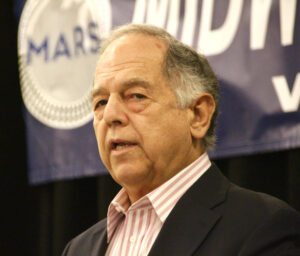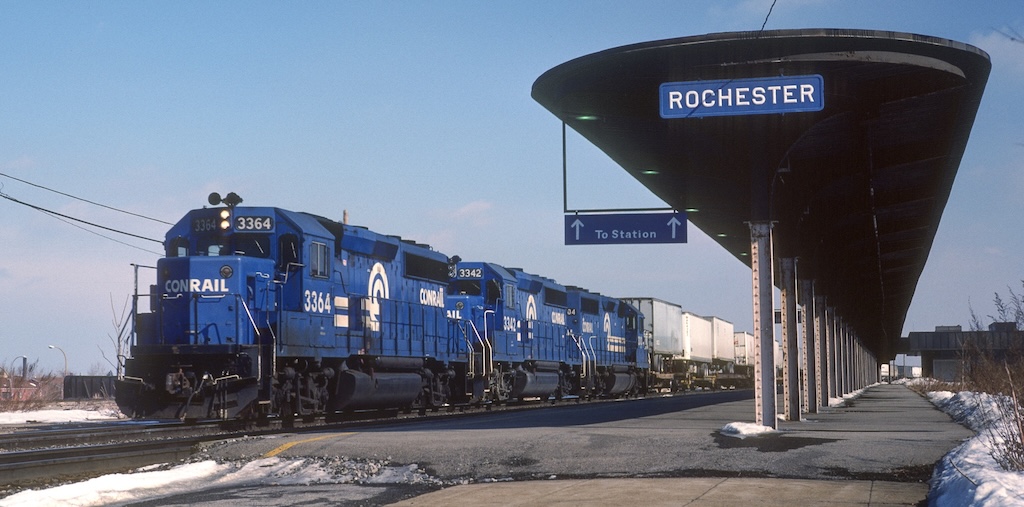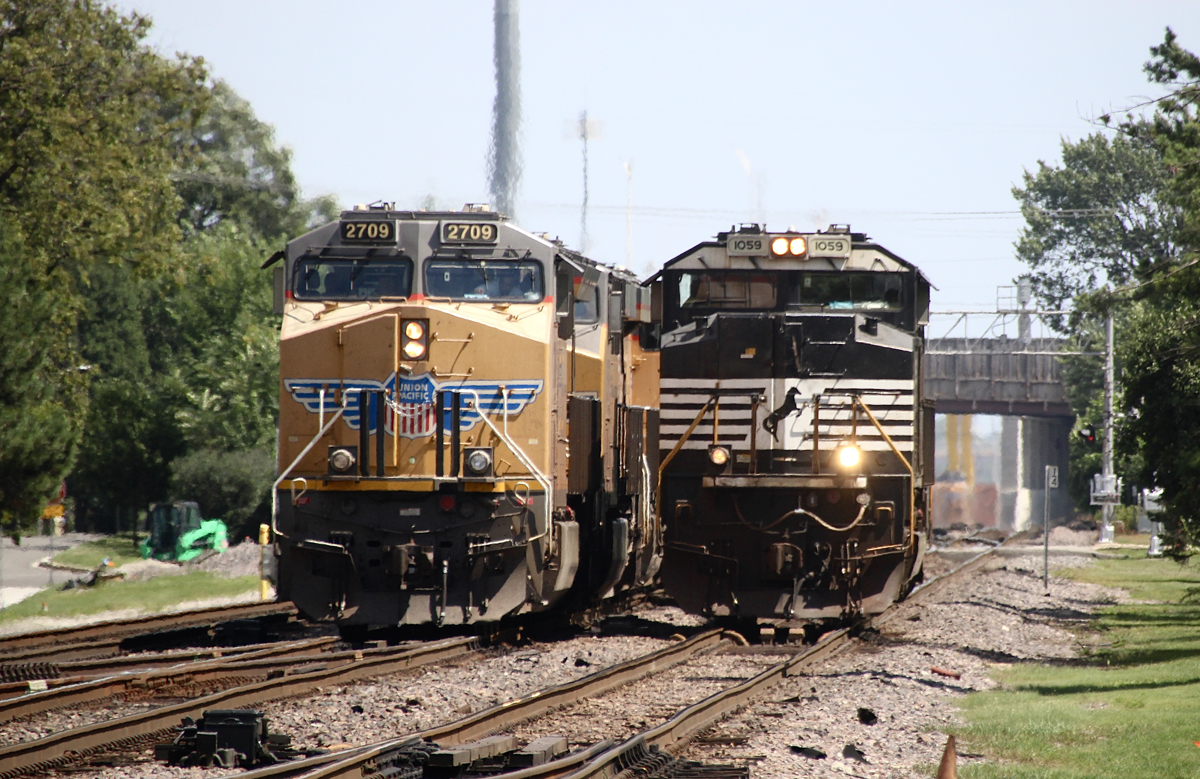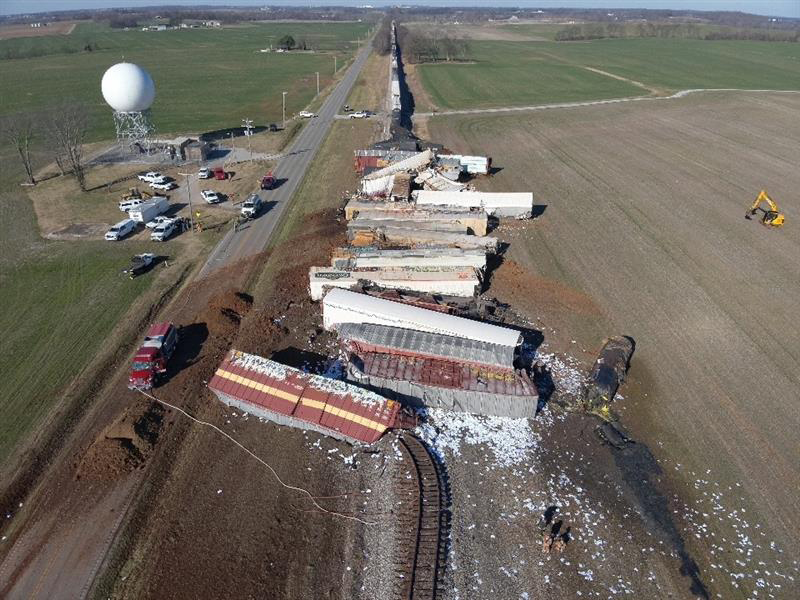The railroad industry’s chickens have come home to roost.
Before he retired in 2019, BNSF Railway Executive Chairman Matt Rose warned that the other Class I railroads were inviting regulatory risk by adopting Precision Scheduled Railroading, reducing service, and demarketing some types of traffic in pursuit of higher profits.

“We have this common-carrier obligation to provide freight service to all customers in all markets,” Rose told an industry conference in January 2019. “And what we’re doing in PSR is we’re redefining what we’re willing to accept in the freight railroad industry on certain lanes. And I really do believe we’re going to get in a lot of trouble by doing that.”
“When you start redefining markets,” Rose warned, “I think then the federal policymakers will look at this, and quite frankly, they will not be happy with us.”
That day of reckoning is here.
Last week, Surface Transportation Board Chairman Martin J. Oberman questioned whether railroads are shirking their common-carrier obligations due to pressure from Wall Street.
“I have wondered … whether the combination of the reductions in workforce, the interruptions in service, the demarketing all implicate the common-carrier obligation that railroads have and have had really since the beginning of the railroad industry,” Oberman told the Midwest Association of Rail Shippers. “And it’s something that I continue to focus my attention on.”
Oberman said he fully supports the White House’s call for increased competition in the rail industry. The Biden administration’s July 9 executive order, which aims to limit the dominance of large corporations, dovetails with efforts already underway at the STB. “There are just many, many parts of the country … where there’s just not real effective competition among rail carriers,” Oberman says.

The STB chief says his agency will take a look at hot-button issues like reciprocal switching, lifting exemptions on the regulation of certain commodities, and ways to more easily settle rate disputes.
Reciprocal switching, which allows captive shippers to seek access to another nearby railroad via interchange, has been on the board’s back burner since 2016. U.S. railroads vigorously oppose reciprocal switching, but Oberman wants action. “I have talked about it a lot. And it’s not just talk,” he says. “The concept of more competition … is something very high on my list of concerns, and I hope we will be able to move forward in some fashion in that area.”
What we don’t know, of course, is what shape regulatory reform ultimately may take at the STB. The devil is always in the details. But it’s clear that Oberman is likely to get the ball rolling — and that the Class I railroads won’t like it much.
“I am frequently reminded by my friends in the railroad industry that we should butt out and the market should regulate rates and service. And I agree. I think the market should regulate rates and service,” Oberman says. “But … for that to happen there has to be a market. And so to me, it is far better if we have more competition in the shipping and freight industry so we don’t have to get involved.”
It’s unclear whether the Big Is Bad mood in Washington may affect the proposed Canadian National-Kansas City Southern merger, the first between Class I systems in two decades. CN and KCS seem to have broad shipper support for their deal, and that’s important. But obviously talk of reducing railroads’ market dominance does not help a merger’s prospects of winning regulatory approval.
The STB has become more activist in the past couple of years and has increased its scrutiny of all sorts of transactions.
Among them: CSX Transportation’s plan to sell its line linking Montreal with Syracuse, N.Y., to Canadian National fell apart after the board insisted on one condition involving interchange. The board upgraded CSX’s proposed acquisition of New England regional Pan Am Railways to a “significant” transaction requiring a more thorough review, then rejected CSX’s merger application as incomplete and told the railroad to do its homework and come back with a more detailed filing. And the STB is taking a closer look at CN’s sale of branch lines in Wisconsin and Michigan to shortline operator Watco, the kind of deal that’s usually been rubber-stamped.

If railroads have been downplaying the threat of onerous regulations — and ignoring Rose’s prescient warning — then Oberman’s comments should serve as a wakeup call. There’s a new sheriff in town.
You can reach Bill Stephens at bybillstephens@gmail.com and follow him on Twitter @bybillstephens














Finally someone who realizes that customers count. Railroads provide a service and that is what they should do. A transportation company is suppose to transport not pick and choose what they consider important to their bottom line.
The CN -KCS merger as I stated before is a Morganization of a railroad. They , the CN, are in a position to take over one railroad ( KCS) and eliminate another ( CP) thus eliminating @30% of the railroad competition in North America.
It is said that the shipper s have for the most part backed this merger but that is only based on the word they receive from the CN. Many have not by backing a CP merger. The only thing that guarantees competitive rates for any carrier is competition. It does not matter in the least what the carrier or the CN might state. The STB needs to reject this merger, it must protect competition not eliminate it. That is the very essence of its existence. To do otherwise gives us no need for an STB.
We would have a healthier rail industry today if President Eisenhower had the wisdom to de-regulate railroads in 1956 as a concession to passage of the Federal Aid Highway Act of 1956 (which built the interstate highway system).
Imagine:
Deregulation in 1956 would have given marginal carriers like the Rock Island, C&NW, and Milwaukee ample time to cut money losing business and position themselves for the changing playing field of subsidized freeways and airports.
Deregulation in 1956 would also have prevented the railroad bankruptcies of the 1970’s that hurt shippers, cost the government money, and caused sudden unemployment for thousands of railroaders.
Instead, the government did everything wrong.
By the time the government recognized the need to deregulate, the patient was already dead or on life support. (This is called, recognition lag).
By the time the government implemented deregulation, what they deregulated were the surviving monopolies. (This is called, implementation lag).
The outcome is that today we hear calls for re-regulating these monopolies.
Sigh.
It seems that the government can only do harm when it interferes with markets. Government regulation is reactive and not proactive. Because of that, the timing of changing regulations is 100% wrong, and the laws come at precisely the wrong time.
I agree that the grass dies whenever the goernment shows up BUT, like the airleines in the 70’s, the railroads liked being regulated.
Regulation meant defined rules of the game and suppressing competition.
Deregulation forced both industries to rethink everything about their business model and operations and lots of executives (not enough, though) found themselves unemployed.
Long ago I predicted this would happen when short sighted shareholders crammed PSR down the the throats of class one RR’s. The industry’s abuse of the freedoms of deregulation has negative consequences for the long term future of railroading as we know it.
As someone living a few miles from the Hoosac Tunnel, I’ve wondered what the effect of the proposed CSX buy out will have on what little traffic is left on that line. I think here it may be too late for competitors who ever they may be, but I am not happy with the idea of becoming an essentially one railroad state for through shipments.
As there is minimal online business between Ayer and Mechanicville and the tunnel has it’s height limitations, start taking bets on when the old B&M west of Greenfield is torn up.
Messers Stowe and Vincent, I also live in Berkshire County and have been paying attention. CSX is wanting to acquire PAR which comes with PAR’s half ownership of PAS. So CSX is not doing a “buy out”. NS has half ownership Mechanicville-Ayer. Unless NS decides it wants out of New England they will not allow the line to be abandoned west of Greenfield. And the agreement between CSX and NS allows only one NS train in each direction, the 22K and 23K, across CSX’s Selkirk and Berkshire Subs Vorheesville-Worcester. Their proposed formation of the B&E to operate a CSAO type railroad the length of PAS sure doesn’t seem like anyone wants to abandonment west of Greenfield.
In the case of the Massena Line, it’s time for “paper barriers” to go. All the other PSR stuff is bad for the industry, but restricting a prospective buyer (and by extension all on-line shippers that exist up to the date of sale) to only interchange with the seller is by definition monopolistic.
I wonder if more individually-owned lines would exist without them, also. The lower rates generated by competing interchanges would certainly make it more attractive than to just cookie-cutter conglomerates like G&W or Watco…
Need any more proof BNSF is and has been one of America’s best-managed major corporations.
Buffett’s probable successor, Abel, is believed to be interested in PSR for the BNSF. Berkshire Hathaway is well managed because Buffett and Munger have acquired companies (like BNSF) that already have good and honest management and have then left them alone. Recently Buffett rebuffed a suggestion that the company set up ‘woke’ diversity and equity standards for each division with the statement that each division is free to manage as it sees best. The problem with having so many companies in so many industries is that they really can’t be managed by headquarters; no one could keep track of all of them.